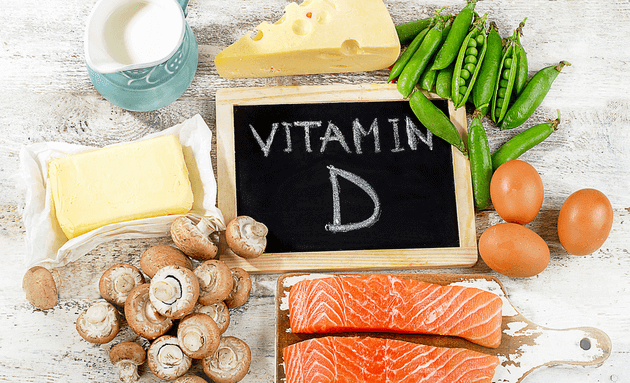Do You Have A Vitamin D Deficiency?
Vitamin D, commonly called the sunshine vitamin, benefits the body in an ample number of ways. However, if not acquired by the body in the right proportion, it can lead to vitamin deficiency and cause multiple ailments. Surprisingly, even in a country like India that receives abundant sunshine all year round, vitamin D deficiencies are highly prevalent. Limited sun exposure and vegetarianism could have a hand to play in this. According to studies, 65-70 per cent of the Indian population is Vitamin D deficient.
Why Vitamin D is important?

Vitamin D is synthesized by the body when the skin is exposed to sunlight. It also occurs naturally in a few foods such as egg yolk, salmon, sardines, and cod liver oil, amongst others.
Vitamin D is crucial for the healthy functioning of your body and is known to support muscle, cell and cardiovascular health, boost immune system function, reduce inflammation that comes with illnesses such as cancer and arthritis, and regulate blood pressure.
Understand if you are at risk of a Vitamin D deficiency
Here are some factors that could lead to you developing a Vitamin D deficiency.
-
Limited Exposure to Sunlight
You could become Vitamin D deficient if you have very little exposure to sunlight. This could be for reasons such as living in areas with little sunlight, limited mobility due to old age, being homebound, dressing habits, or because your work hours do not need you to step out during the day.

-
Eating Habits
Vitamin D naturally occurs in animal-based foods such as fish and eggs. As a result, you could be limiting your intake of the sunshine vitamin if you are a vegetarian. That said, foods such as fortified soy chunks, oranges and mushrooms can still provide you with Vitamin D. -
Obesity
Fat cells in the body are known to absorb Vitamin D. As a result, being obese can reduce the release of Vitamin D into your bloodstream. In India, it is advisable to have a BMI (body mass index) of not more than 22.9. Individuals with a BMI of 30 or greater tend to have low Vitamin D levels in their blood. -
Limited Kidney and Digestive Function
As you age, your kidneys’ ability to convert Vitamin D to its active form, where it can be used by the body, reduces. Certain medical ailments such as celiac disease, cystic fibrosis, and Crohn’s disease can also inhibit the body’s ability to absorb vitamin D from the food you consume. -
High levels of the pigment Melanin in Skin
Melanin, the pigment that gives your skin its colour, reduces the skin's ability to synthesize vitamin D upon exposure to sunlight. Individuals who have higher levels of the pigment, or those who are dusky, are thus more susceptible to Vitamin D deficiencies. Older adults with darker skin are naturally at a much higher risk of developing a Vitamin D deficiency. -
Pregnancy or Breastfeeding
A baby’s nutritional demands could impact Vitamin D levels in pregnant and breastfeeding women. Women who are already at risk of having low vitamin D levels before pregnancy are particularly affected.

Further, when mothers are vitamin D deficient, their babies may need to be given supplements, especially if they are not taken outside much.
Impact on the Body and Treatment
Low levels of Vitamin D can lead to weak bones and muscles, increased risk of cardiovascular disease, severe asthma in children, and cognitive impairment in older adults. For a lot of people, symptoms can be very subtle, often presenting in the form of exhaustion, low immunity and disturbed sleep.
The requisite dosage of Vitamin D differs depending on age and one's general health. Most individuals who suffer from a Vitamin D deficiency are given diet guidelines or supplements to help get the desired dose.
Getting enough sunshine however is the best way to soak up the vitamin. In India, about 20 to 40 minutes of exposure between 11 in the morning and 1 in the afternoon is recommended.






